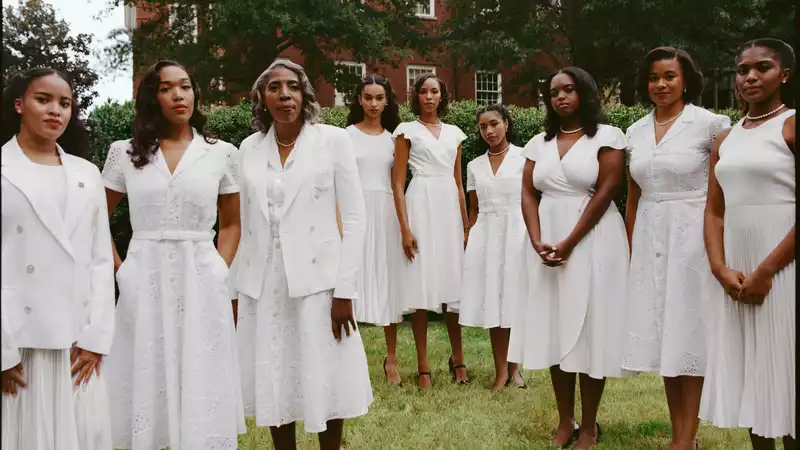
Polo Ralph Lauren pays homage to the style history of two HBCUs
This week, Polo Ralph Lauren further reinterpreted collegiate fashion with a limited-edition collection inspired by two historic black colleges in Atlanta, Georgia, Morehouse College and Spelman College.
"When approached with the idea of a collection inspired by the traditional attire of historic black colleges and universities, it became clear that some of our design sensibilities were missing," explains founder Ralph Lauren. Of the history and tradition of clothing at both Morehouse and Spelman, he said: "Our portrait of American style and our vision of the American dream would be incomplete without black experiences like these."
Spellman's collection featured white patchwork eyelets and silk wrap dresses, a nod to the college's women-only commencement ceremony. The wool flannel blazers, on the other hand, pay homage to Morehouse's freshman uniform. The full collection includes outerwear, knitwear, tailored suits, shoes, and accessories. All items embody the fashions worn by HBCU students between 1920 and 1950 and are inspired by archival research.
Last year, the Ralph Lauren Corporate Foundation pledged $2 million in scholarship support to students at 12 historically black colleges and universities, including Morehouse and Spelman.7]
"Through the garments, this collection demonstrates the creative power of the black experience and the personal conversation about the ways in which personal fashion aesthetics intersect with institutional values of solidarity and connection," said Dr. Mary Schmidt Campbell, president of Spelman College,
"The collection is a great example of the power of the Black experience and the way in which it is intersecting with the institutional values of solidarity and connection. [Historically black colleges and universities have been centers of intellectual discourse and cultural influence for over 150 years. The partnership between Morehouse and Ralph Lauren is intellectually, creatively, and boldly all-encompassing of this intersection and reflects the breadth of our influence in driving social change throughout our history," Morehouse College President Dr. David A. Thomas He added.

Comments